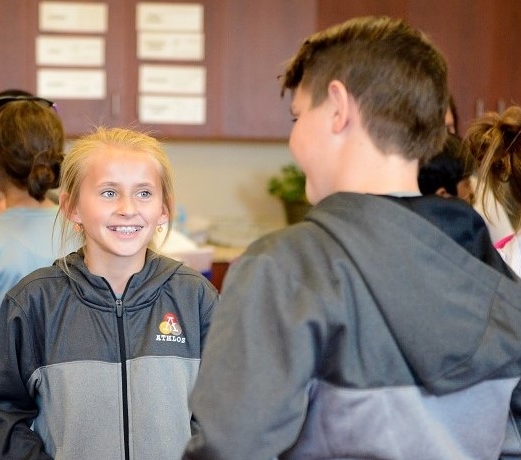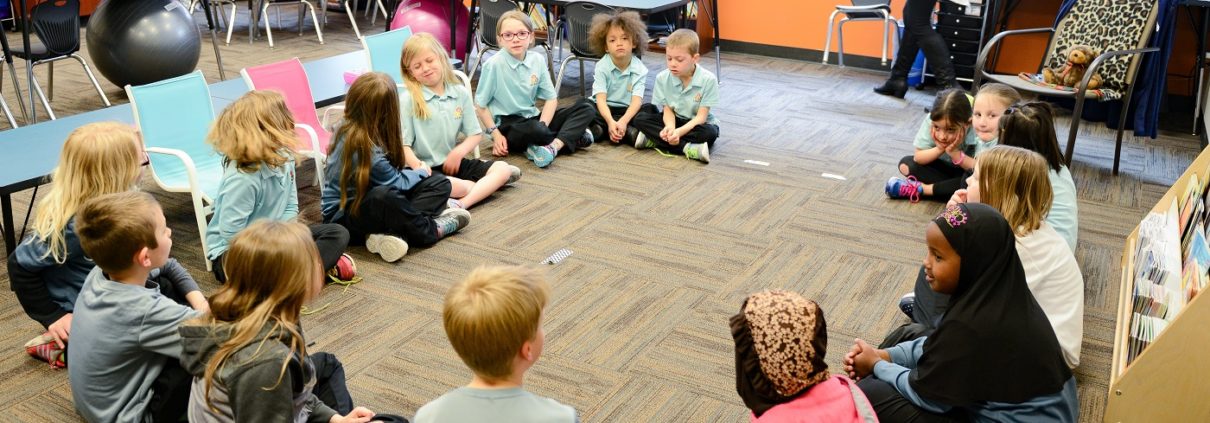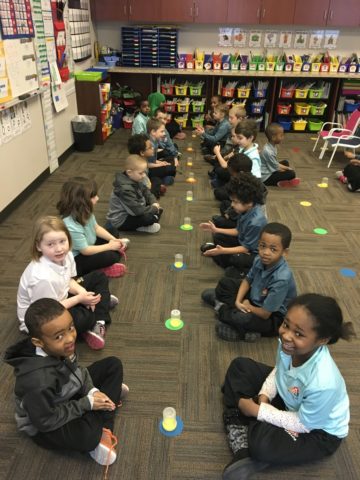Character Huddles Develop Strong, Supportive Relationships
Each day, students at Athlos Academies have an opportunity to participate in character huddles where they check in with each other, engage in Performance Character building activities, and develop strong and supportive relationships. These morning huddles allow students to feel a sense of community and trust, setting the stage for a day of engaged learning and growth.
What’s a Huddle?
Morning huddles are classroom meetings specifically designed to teach students about Performance Character, provide opportunities to develop trait-related skills, and to help set the tone and learning environment for the day.
Huddles typically start with the students sitting in a circle following a structure that consists of a:
- Warmup
- Activity
- Cool down
This structure creates routine and supports students who benefit from predictability.
Especially when implemented in the morning, huddles allow teachers to check in with students and gauge their readiness to learn in the day ahead. It also serves as a time for students to check in with each other and share anything on their mind that might be a distraction later if left unaddressed.
Just as it is important to learn the focus of the huddle, it is equally important to give every student a voice and a feeling of support and community.
Huddles Provide a Sense of Belonging
From the moment students enter an Athlos classroom, they build relationships and a sense of belonging through frequent interpersonal contacts and interactions.
“Huddles have created a sense of community in my classroom. We are our own little family,” said Samantha Lahr, a fourth-grade teacher at Athlos Academies. “Students feel more comfortable and confident when working with a classmate they know personal details about.”
Research on belonging has shown that students who feel respected by their teachers and peers trust them more, and as a result student discipline issues decrease. “Because we share and talk during our daily huddles, we know about each other’s goals and positive and difficult times we have gone through,” Lahr said.
Safety and Support in Huddles
As students learn the relevancy of the material, they learn more about each other as they reflect on it together. They start to hold each other accountable and develop a culture of safety and support, which often leads to personal and emotional connections.
“They all care about the well-being of their peers,” Lahr said. “We help each other out when times are difficult and bring each other up when we need that emotional boost. We also cheer each other on when we succeed, without passing judgement or jealousy. The students in my class genuinely care about each other.”
The act of “checking in” with each other is encouraged to be a dual-sided conversation. As students and teachers take the initiative in asking questions about the other, they must also develop courage to share answers to similar questions in return, further creating a classroom culture of trust.
“No significant learning can occur without a significant relationship.”
– James Comer
 By providing students with a consistent and structured time to meet each day they begin to establish and maintain relationships and come to understand that there is more to Performance Character traits than their definitions.
By providing students with a consistent and structured time to meet each day they begin to establish and maintain relationships and come to understand that there is more to Performance Character traits than their definitions.
Huddles foster the conditions for Performance Character building experiences like risk taking, empathizing, conflict resolution, and collaboration. Athlos has found that beginning every day with a huddle sets the stage for these and other experiences that are intentionally designed to not only make learning meaningful and engaging during school, but more importantly, to prepare students for life outside the classroom.





Leave a Reply
Want to join the discussion?Feel free to contribute!